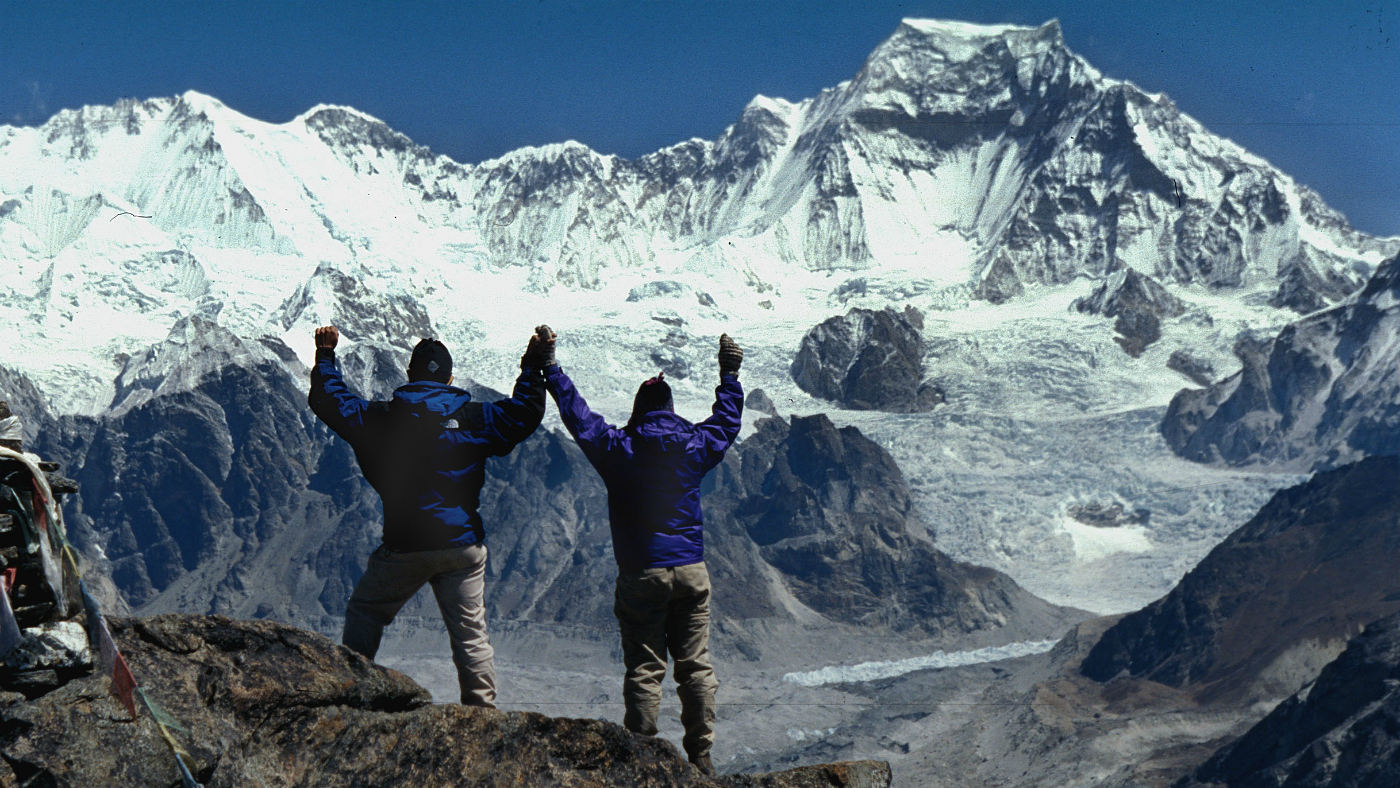China closes its Mount Everest base camp to tourists
Decision to limit number of visitors due to mounting waste problem at site

A free daily email with the biggest news stories of the day – and the best features from TheWeek.com
You are now subscribed
Your newsletter sign-up was successful
China has closed its side of the base camp of Mount Everest to visitors who don’t have a climbing permit.
Authorities “have resorted to the unusual move to deal with the mounting waste problem at the site”, reports the BBC.
The ban means tourists “can only go as far as a monastery slightly below the 5,200m (17,060ft) base camp level”, the broadcaster adds.
The Week
Escape your echo chamber. Get the facts behind the news, plus analysis from multiple perspectives.

Sign up for The Week's Free Newsletters
From our morning news briefing to a weekly Good News Newsletter, get the best of The Week delivered directly to your inbox.
From our morning news briefing to a weekly Good News Newsletter, get the best of The Week delivered directly to your inbox.
In January, authorities announced that they would limit the number of climbing permits each year to 300.
Climbers will also be required to meet stricter rules to protect the environment, an official from the Chinese Mountaineering Association (CMA) told the South China Morning Post.
Calling for further action to protect Mount Everest, the official added that workers had collected 8.4 tonnes of rubbish from the base camp last year.
And “in the regions below that level, 335 tonnes of waste had been collected”, says Singapore news website Today Online.
A free daily email with the biggest news stories of the day – and the best features from TheWeek.com
The Chinese Mountaineering Association said 40,000 visited its base camp in 2015, the most recent year with figures.
The Nepalese side of the mountain faces similar pressure. Visitor numbers there rose from just 3,500 in 1973 to a record 45,000 in 2016-17, according to Nepal’s Ministry of Forests and Soil Conservation.
China “has set up stations to sort, recycle and break down the rubbish”, says The Independent. On the Nepalese side, organisers “have started sending large waste bags with climbers during the spring climbing season to collect trash that can be winched back to base camp by helicopters”, adds the paper.
Currently the waste is dropped into pits on Gorak Shep, a frozen lake bed near a village 17,000 feet above sea level.
The Independent reported last year that human waste is also becoming a problem on Everest – “in the roughly two months that it takes to reach the summit, the average climber will have produced nearly 60 pounds of excrement”, the newspaper said.
On Chinese social media, claims had been spread in recent days that its base camp would be permanently closed to tourists - but Chinese newspaper Xinhua said officials had denied that.
-
 The year’s ‘it’ vegetable is a versatile, economical wonder
The year’s ‘it’ vegetable is a versatile, economical wonderthe week recommends How to think about thinking about cabbage
-
 Moltbook: The AI-only social network
Moltbook: The AI-only social networkFeature Bots interact on Moltbook like humans use Reddit
-
 Judge orders Washington slavery exhibit restored
Judge orders Washington slavery exhibit restoredSpeed Read The Trump administration took down displays about slavery at the President’s House Site in Philadelphia
-
 Epstein files topple law CEO, roil UK government
Epstein files topple law CEO, roil UK governmentSpeed Read Peter Mandelson, Britain’s former ambassador to the US, is caught up in the scandal
-
 Iran and US prepare to meet after skirmishes
Iran and US prepare to meet after skirmishesSpeed Read The incident comes amid heightened tensions in the Middle East
-
 Israel retrieves final hostage’s body from Gaza
Israel retrieves final hostage’s body from GazaSpeed Read The 24-year-old police officer was killed during the initial Hamas attack
-
 China’s Xi targets top general in growing purge
China’s Xi targets top general in growing purgeSpeed Read Zhang Youxia is being investigated over ‘grave violations’ of the law
-
 Panama and Canada are negotiating over a crucial copper mine
Panama and Canada are negotiating over a crucial copper mineIn the Spotlight Panama is set to make a final decision on the mine this summer
-
 Why Greenland’s natural resources are nearly impossible to mine
Why Greenland’s natural resources are nearly impossible to mineThe Explainer The country’s natural landscape makes the task extremely difficult
-
 Iran cuts internet as protests escalate
Iran cuts internet as protests escalateSpeed Reada Government buildings across the country have been set on fire
-
 US nabs ‘shadow’ tanker claimed by Russia
US nabs ‘shadow’ tanker claimed by RussiaSpeed Read The ship was one of two vessels seized by the US military